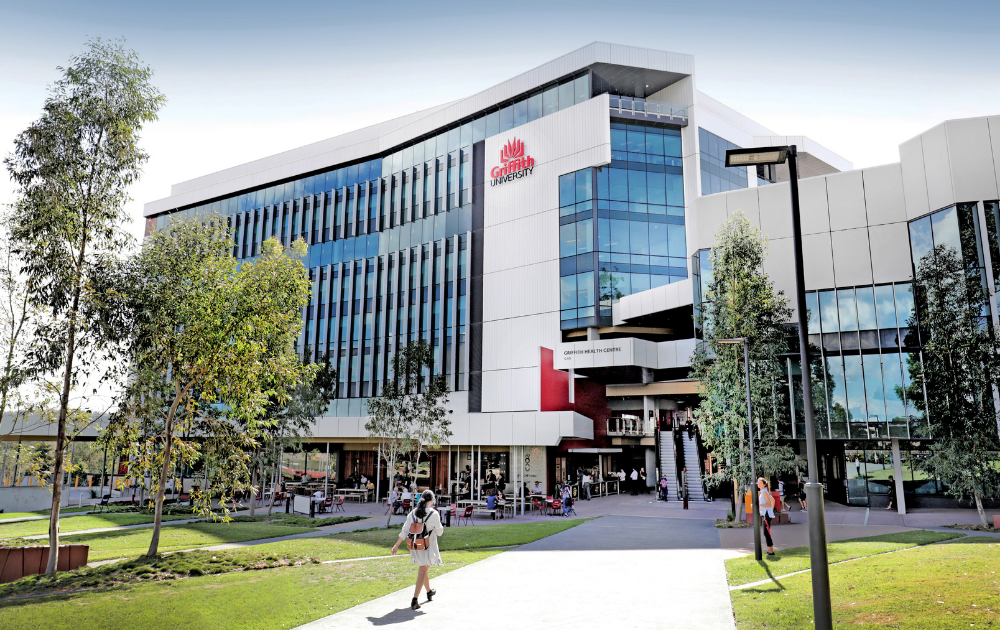Dr Amanda McGuire and Dr Charrlotte Seib of the Menzies Health Institute Queensland (MHIQ) both took their clinical skills into a new direction by building careers as researchers. They research a range of topics through their work with the MHIQ Women’s Wellness Research Group.
The Women’s Wellness Research Group has a wide research focus, including diabetes, cancer, mid-life health, and younger women’s health. In the context of the Group, wellness is about promoting health rather than treating disease, optimising women’s health and wellbeing through evidence-based health programs and research.
Charrlotte’s current research aims to understand the socio-cultural and environmental factors that impact on morbidity in women and seeks to build upon an individual’s personal resources to mitigate these risk factors. As the Co-Lead of the Women’s Wellness Research Group, Charrlotte says this research and the research of the groups aims to take a holistic view of providing care to women.

“Our research recognises that men and women respond differently to illness and to health promotion messages, so our findings allow us to develop interventions tailored specifically for women based on that knowledge,” she says.
“We have a number of members who are looking at primary prevention such as nutrition and exercise physiology, and others who look at health motivations, such as the psycho-social effects of exercise on cancer treatment or our clinical psychologists who are researching the impact of physical activity on mental wellbeing.”
Both Amanda and Charrlotte encourage more women to enter the field of research. Amanda says that having that representation can help produce better outcomes for women in terms of health and wellbeing.
“Women have specific needs, and what we’re increasingly finding in our work is that healthcare delivery is not one size fits all,” says Amanda.
“Traditionally women weren’t well represented in health research, particularly clinical trials and the development of treatments, which were usually trialed with men. But when we design programs and health interventions with women in mind, we know it is likely to have better outcomes, and women are more likely to engage and participate.
“We know women also still put things like family responsibilities and caring responsibilities first, and so designing health programs that help support women to prioritise their health and wellbeing is another important aspect of the work we do.”

When it comes to her own career, Amanda says it was her clinical experience as a senior cardiac nurse that prompted her to move into research, after she witnessed the different experiences men and women often had in care.
“The symptoms of a heart attack are different for men and women, and unfortunately, women often receive a different level of care because of this,” she explains.
“I was drawn to research because I wanted to do preventative work to improve women’s health literacy and understanding of risk factors, and to support women to improve their health before they become ill.”
Now, Amanda says she continues to work as a researcher because of the contribution she can make to healthcare. Coming into research after a clinical career gives her an entirely new perspective on research.
“Often students think of research as being quite dry, and because they haven’t got the clinical experience, they can’t relate concepts of research to practice, but I love the fact that through my research I can make a different contribution to improving health outcomes,” she says.
“You make that difference by contributing to new knowledge and by developing innovative health care programs that support people to reduce risk of disease and improve quality of life.”
Charrlotte echoes this sentiment, saying she never expected to build a career in research when she first stepped into work as a sexual and reproductive health nurse.
“My first research assignment in my research training, I remember the lecturer writing on my assignment that if I couldn’t grasp these basic concepts, they had concerns about whether I would finish the course. The irony is that several years later I worked for that professor as a tutor,” she laughs.
“I’m the perfect example of the fact that you can go from a statistics novice to having a command of research methods.”
Charrlotte says that there are opportunities to build a career in research at any stage in your study journey.
“For students, there are opportunities for summer scholarships where students in their second and third year of their degrees can get a taste of research, which is a wonderful opportunity while in their very early career,” she explains.
“But for those with clinical experience, there’s the opportunity to return to study just like Amanda and I did, through things like the Master of Medical Research or for nurses like myself, the Master of Advanced Nursing Practice, both of which can offer pathways into a higher degree by research. There’s something to suit everyone.”
2020 has been recognised as the WHO Year of the Nurse and the Midwife. If you would like to start or further a career in nursing, join Griffith University for the Bachelor of Nursing or our wide range of post-graduate study options, such as the Master of Infection Prevention and Control and the Graduate Certificate of Acute Care Nursing.



